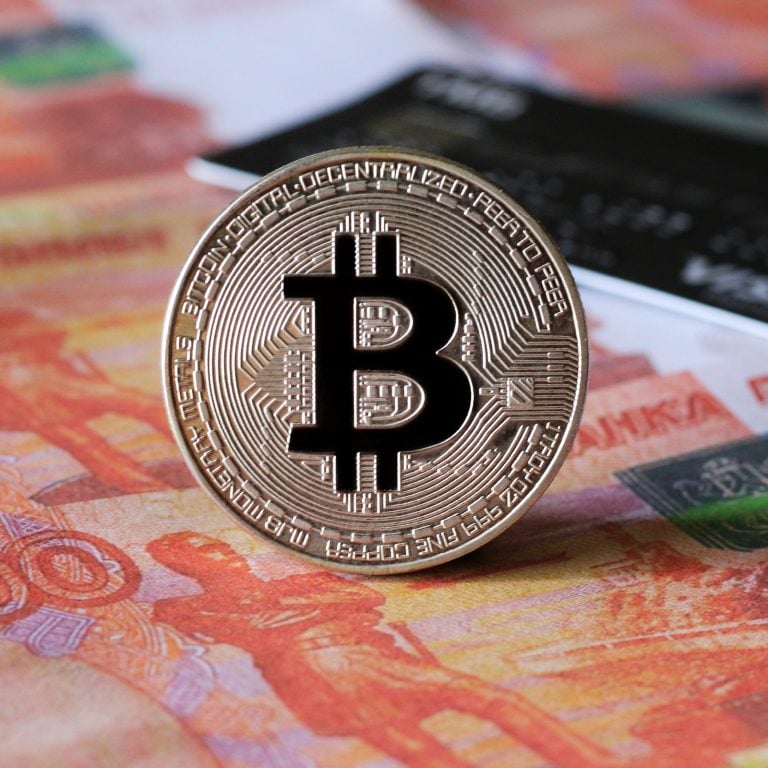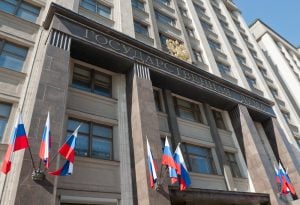Latest news about Bitcoin and all cryptocurrencies. Your daily crypto news habit.

A draft law aiming to protect the rights of owners of cryptocurrencies, while regulating their use for payments, has been introduced in Russia’s parliament. The bill defines terms like “digital money” and “digital rights”. It also allows authorities to subject cryptos to taxation, inheritance rights, and bankruptcy claims.
Also read: Bill “On Digital Assets” Filed in the Duma, Disagreements Resolved
“Digital Money” to Be Legal Means of Payment
The law amends Russia’s Civil Code to create a basis for “legal relations in the digital economy”. The draft is co-sponsored by the Speaker of State Duma, Vyacheslav Volodin, and the head of the parliamentary Legislation Committee, Pavel Krasheninnikov. Their initiative effectively legalizes financial transactions in the digital environment.
 Bill №424632-7 has been filed about a week after the introduction of bill №419059-7, prepared by the Finance Ministry. In its latest version, the law “On Digital Financial Assets” regulates initial coin offerings and crypto mining, but bans cryptocurrencies according to its critics. The fate of cryptos, like bitcoin, will be decided by the Central Bank of Russia (CBR), which has repeatedly opposed their circulation and exchange in the country.
Bill №424632-7 has been filed about a week after the introduction of bill №419059-7, prepared by the Finance Ministry. In its latest version, the law “On Digital Financial Assets” regulates initial coin offerings and crypto mining, but bans cryptocurrencies according to its critics. The fate of cryptos, like bitcoin, will be decided by the Central Bank of Russia (CBR), which has repeatedly opposed their circulation and exchange in the country.
In the new law, cryptocurrencies are referred to as “digital money”, Rossiyskay Gazeta reports. According its authors, it’s necessary to legally define cryptos and other “digital” terms to ensure that the legal rights of participants in virtual transactions are protected. The draft reads that their acceptance for payments, deposits, transfers and as units of account will not be obligatory in the Russian Federation. However, it also provides for the use of cryptocurrencies as means of payment when that’s technically possible and risks are excluded.
“In perspective, digital money will be used as a payment instrument, but only in cases and on terms established by the law,” said Pavel Krasheninnikov. Quantities will be controlled and users’ information will be collected. Lawmakers claim this will allow authorities to track cryptocurrencies in cases of bankruptcy and also apply inheritance rights.
Changes to Be Implemented By May
 The legislation is expected to facilitate digital deals like smart contracts. Digital confirmations will be just as valid as written statements and signatures. The regulation of digital rights creates basis for a taxation mechanism in the virtual space. It also provides for applying measures to prevent the laundering of funds acquired through illegal means.
The legislation is expected to facilitate digital deals like smart contracts. Digital confirmations will be just as valid as written statements and signatures. The regulation of digital rights creates basis for a taxation mechanism in the virtual space. It also provides for applying measures to prevent the laundering of funds acquired through illegal means.
If adopted, the new digital economy law should enter into force by May 1, 2018. Supplementary regulations will determine different aspects of the digital rights and the circulation of cryptocurrencies. They will be developed with the participation of the Central Bank of Russia and the Ministries of Finance and Economic Development.
The legal status of cryptocurrencies has become the focal point of the regulatory debate in Moscow. Relevant institutions, like the Finance Ministry and the CBR, have sometimes expressed completely different opinions on the matter. Proposals are ranging from allowing free crypto trade to introducing an outright ban and even criminal liability for illegal circulation of money surrogates. If the latest bill wins support in parliament, cryptos may be accepted as means of payment in Russia after all.
Do you expect Russia to eventually legalize cryptocurrencies? Share your thoughts in the comments section below.
Images courtesy of Shutterstock.
Express yourself freely at Bitcoin.com’s user forums. We don’t censor on political grounds. Check forum.Bitcoin.com.
The post New Bill Aims to Allow Crypto Payments in Russia appeared first on Bitcoin News.
Disclaimer
The views and opinions expressed in this article are solely those of the authors and do not reflect the views of Bitcoin Insider. Every investment and trading move involves risk - this is especially true for cryptocurrencies given their volatility. We strongly advise our readers to conduct their own research when making a decision.